#→ bryce
Explore tagged Tumblr posts
Text

Bryce Alfred Myles
30
Mutant
Omega level telepathy (mind reader, mind manipulation, memory manipulation, mind sedation, paralysis, pain induction, overload, psychic connection, illusion casting, power sensing, power manipulation,...), telekiensis, psychic energy projection.
The son of a neoyorkian businessman that came up through the ranks too fast too illegally for Bryce's own comfort. His own desire to combat his father's corruption lead him to a path of corrupted vengeance that made him go against his own father eventually destroying his company while managing to retain the money that came his way and had always been his. He owns a successful variety bar on a Brooklyn corner and doesn't hesistate about using his powers against people to get what he wants.
Albeit not a hero and acting more like an antihero, he does support the Defenders and heroes of New York. Without hesitation. Using the nickname Psyforce
4 notes
·
View notes
Text
My first 3D model, made after playing Riven (1997):

and my latest, made for Riven (2024):

#myst#riven#bryce 3d#talk about a full-circle moment#never thought I’d be here but it feels oh so right#GO FORTH AND PLAY RIVEN it’s pretty great
8K notes
·
View notes
Text



Starborn, Fireheart & Lady Death - CC, TOG & ACOTAR
Artist: renata_watsonn
#renata_watsonn#bryce quinlan#starborn#crescent city#aelin ashryver galathynius#aelin fireheart#throne of glass#nesta archeron#lady death#a court of silver flames#acosf#a court of thorns and roses#acotar#hofas#hosab#hoeab#tog#crescent city fanart#cc fanart#tog fanart#tog art#acotar art#acotar fanart#acosf art#acosf fanart#cc3 hofas#cc hofas#sarah j maas#sjm fanart#book art
6K notes
·
View notes
Text

#belgian#bryce 3d#raytracing#retro cgi#vaporwave#aesthetic#vintage cgi#old cgi#3d render#3d artwork#3dart#mallsoft#vaporaesthetic#vaporart#y2k#oc art
6K notes
·
View notes
Text

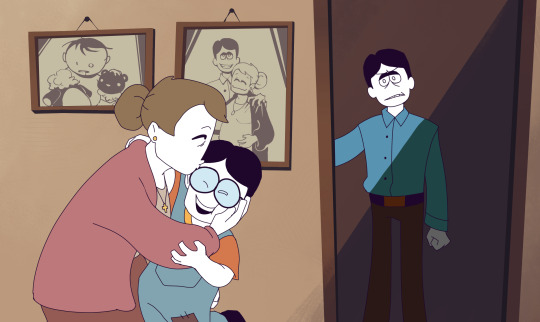


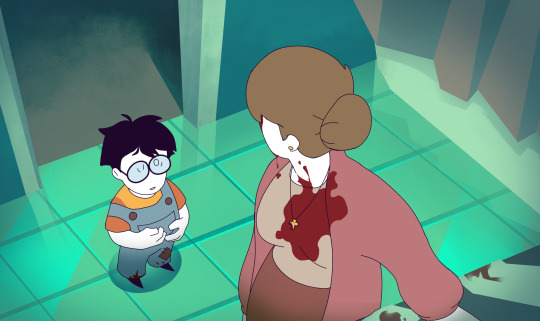



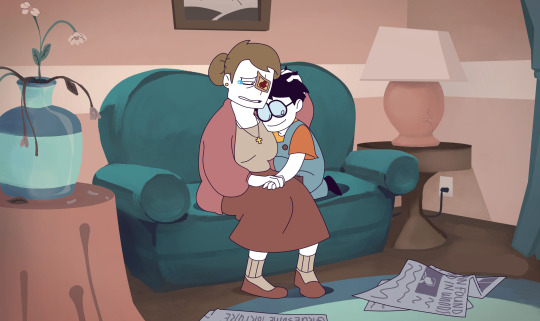
Shame that the Dexter short is lost media
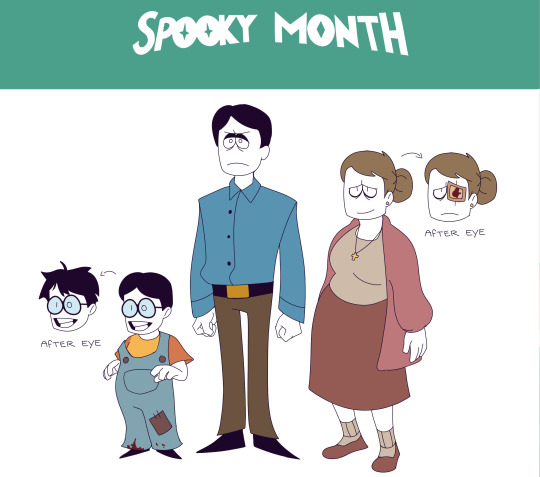

#spooky month#dexter erotoph#spooky month dexter#michelle erotoph#spooky month michelle#spooky month oc#spooky month bryce#my art#tw blood
1K notes
·
View notes
Text


BRYCE JOHNSON Willow Creek (2013)
#bryce johnson#willow creek#willow creek 2013#film#movie#actor#men#menedit#guys#🍑#holesrus#gifs#mine#*
2K notes
·
View notes
Text
The one weird monopoly trick that gave us Walmart and Amazon and killed Main Street
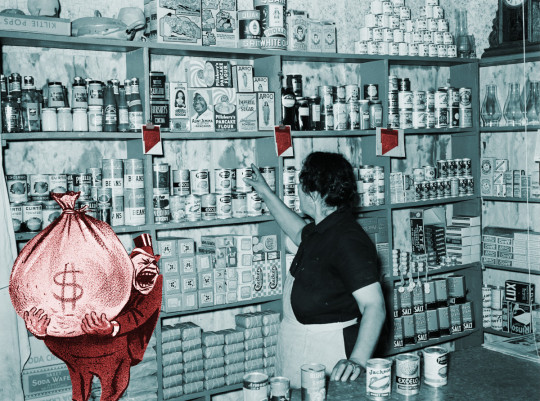
I'm coming to BURNING MAN! On TUESDAY (Aug 27) at 1PM, I'm giving a talk called "DISENSHITTIFY OR DIE!" at PALENQUE NORTE (7&E). On WEDNESDAY (Aug 28) at NOON, I'm doing a "Talking Caterpillar" Q&A at LIMINAL LABS (830&C).

Walmart didn't just happen. The rise of Walmart – and Amazon, its online successor – was the result of a specific policy choice, the decision by the Reagan administration not to enforce a key antitrust law. Walmart may have been founded by Sam Walton, but its success (and the demise of the American Main Street) are down to Reaganomics.
The law that Reagan neutered? The Robinson-Patman Act, a very boring-sounding law that makes it illegal for powerful companies (like Walmart) to demand preferential pricing from their suppliers (farmers, packaged goods makers, meat producers, etc). The idea here is straightforward. A company like Walmart is a powerful buyer (a "monopsonist" – compare with "monopolist," a powerful seller). That means that they can demand deep discounts from suppliers. Smaller stores – the mom and pop store on your Main Street – don't have the clout to demand those discounts. Worse, because those buyers are weak, the sellers – packaged goods companies, agribusiness cartels, Big Meat – can actually charge them more to make up for the losses they're taking in selling below cost to Walmart.
Reagan ordered his antitrust cops to stop enforcing Robinson-Patman, which was a huge giveaway to big business. Of course, that's not how Reagan framed it: He called Robinson-Patman a declaration of "war on low prices," because it prevented big companies from using their buying power to squeeze huge discounts. Reagan's court sorcerers/economists asserted that if Walmart could get goods at lower prices, they would sell goods at lower prices.
Which was true…up to a point. Because preferential discounting (offering better discounts to bigger customers) creates a structural advantage over smaller businesses, it meant that big box stores would eventually eliminate virtually all of their smaller competitors. That's exactly what happened: downtowns withered, suburban big boxes grew. Spending that would have formerly stayed in the community was whisked away to corporate headquarters. These corporate HQs were inevitably located in "onshore-offshore" tax haven states, meaning they were barely taxed at the state level. That left plenty of money in these big companies' coffers to spend on funny accountants who'd help them avoid federal taxes, too. That's another structural advantage the big box stores had over the mom-and-pops: not only did they get their inventory at below-cost discounts, they didn't have to pay tax on the profits, either.
MBA programs actually teach this as a strategy to pursue: they usually refer to Amazon's "flywheel" where lower prices bring in more customers which allows them to demand even lower prices:
https://www.youtube.com/watch?v=BaSwWYemLek
You might have heard about rural and inner-city "food deserts," where all the independent grocery stores have shuttered, leaving behind nothing but dollar stores? These are the direct product of the decision not to enforce Robinson-Patman. Dollar stores target working class neighborhoods with functional, beloved local grocers. They open multiple dollar stores nearby (nearly all the dollar stores you see are owned by one of two conglomerates, no matter what the sign over the door says). They price goods below cost and pay for high levels of staffing, draining business off the community grocery store until it collapses. Then, all the dollar stores except one close and the remaining store fires most of its staff (working at a dollar store is incredibly dangerous, thanks to low staffing levels that make them easy targets for armed robbers). Then, they jack up prices, selling goods in "cheater" sizes that are smaller than the normal retail packaging, and which are only made available to large dollar store conglomerates:
https://pluralistic.net/2023/03/27/walmarts-jackals/#cheater-sizes
Writing in The American Prospect, Max M Miller and Bryce Tuttle1 – a current and a former staffer for FTC Commissioner Alvaro Bedoya – write about the long shadow cast by Reagan's decision to put Robinson-Patman in mothballs:
https://prospect.org/economy/2024-08-13-stopping-excessive-market-power-monopoly/
They tell the story of Robinson-Patman's origins in 1936, when A&P was using preferential discounts to destroy the independent grocery sector and endanger the American food system. A&P didn't just demand preferential discounts from its suppliers; it also charged them a fortune to be displayed on its shelves, an early version of Amazon's $38b/year payola system:
https://pluralistic.net/2022/11/28/enshittification/#relentless-payola
They point out that Robinson-Patman didn't really need to be enacted; America already had an antitrust law that banned this conduct: section 2 of the the Clayton Act, which was passed in 1914. But for decades, the US courts refused to interpret the Clayton Act according to its plain meaning, with judges tying themselves in knots to insist that the law couldn't possibly mean what it said. Robinson-Patman was one of a series of antitrust laws that Congress passed in a bid to explain in words so small even federal judges could understand them that the purpose of American antitrust law was to keep corporations weak:
https://pluralistic.net/2023/04/14/aiming-at-dollars/#not-men
Both the Clayton Act and Robinson-Patman reject the argument that it's OK to let monopolies form and come to dominate critical sectors of the American economy based on the theoretical possibility that this will lead to lower prices. They reject this idea first as a legal matter. We don't let giant corporations victimize small businesses and their suppliers just because that might help someone else.
Beyond this, there's the realpolitik of monopoly. Yes, companies could pass lower costs on to customers, but will they? Look at Amazon: the company takes $0.45-$0.51 out of every dollar that its sellers earn, and requires them to offer their lowest price on Amazon. No one has a 45-51% margin, so every seller jacks up their prices on Amazon, but you don't notice it, because Amazon forces them to jack up prices everywhere else:
https://pluralistic.net/2024/03/01/managerial-discretion/#junk-fees
The Robinson-Patman Act did important work, and its absence led to many of the horribles we're living through today. This week on his Peoples & Things podcast, Lee Vinsel talked with Benjamin Waterhouse about his new book, One Day I’ll Work for Myself: The Dream and Delusion That Conquered America:
https://athenaeum.vt.domains/peoplesandthings/2024/08/12/78-benjamin-c-waterhouse-on-one-day-ill-work-for-myself-the-dream-and-delusion-that-conquered-america/
Towards the end of the discussion, Vinsel and Waterhouse turn to Robinson-Patman, its author, Wright Patman, and the politics of small business in America. They point out – correctly – that Wright Patman was something of a creep, a "Dixiecrat" (southern Democrat) who was either an ideological segregationist or someone who didn't mind supporting segregation irrespective of his beliefs.
That's a valid critique of Wright Patman, but it's got little bearing on the substance and history of the law that bears his name, the Robinson-Patman Act. Vinsel and Waterhouse get into that as well, and while they made some good points that I wholeheartedly agreed with, I fiercely disagree with the conclusion they drew from these points.
Vinsel and Waterhouse point out (again, correctly) that small businesses have a long history of supporting reactionary causes and attacking workers' rights – associations of small businesses, small women-owned business, and small minority-owned businesses were all in on opposition to minimum wages and other key labor causes.
But while this is all true, that doesn't make Robinson-Patman a reactionary law, or bad for workers. The point of protecting small businesses from the predatory practices of large firms is to maintain an American economy where business can't trump workers or government. Large companies are literally ungovernable: they have gigantic war-chests they can spend lobbying governments and corrupting the political process, and concentrated sectors find it comparatively easy to come together to decide on a single lobbying position and then make it reality.
As Vinsel and Waterhouse discuss, US big business has traditionally hated small business. They recount a notorious and telling anaecdote about the editor of the Chamber of Commerce magazine asking his boss if he could include coverage of small businesses, given the many small business owners who belonged to the Chamber, only to be told, "Over my dead body." Why did – why does – big business hate small business so much? Because small businesses wreck the game. If they are included in hearings, notices of inquiry, or just given a vote on what the Chamber of Commerce will lobby for with their membership dollars, they will ask for things that break with the big business lobbying consensus.
That's why we should like small business. Not because small business owners are incapable of being petty tyrants, but because whatever else, they will be petty. They won't be able to hire million-dollar-a-month union-busting law-firms, they won't be able to bribe Congress to pass favorable laws, they can't capture their regulators with juicy offers of sweet jobs after their government service ends.
Vinsel and Waterhouse point out that many large firms emerged during the era in which Robinson-Patman was in force, but that misunderstands the purpose of Robinson-Patman: it wasn't designed to prevent any large businesses from emerging. There are some capital-intensive sectors (say, chip fabrication) where the minimum size for doing anything is pretty damned big.
As Miller and Tuttle write:
The goal of RPA was not to create a permanent Jeffersonian agrarian republic of exclusively small businesses. It was to preserve a diverse economy of big and small businesses. Congress recognized that the needs of communities and people—whether in their role as consumers, business owners, or workers—are varied and diverse. A handful of large chains would never be able to meet all those needs in every community, especially if they are granted pricing power.
The fight against monopoly is only secondarily a fight between small businesses and giant ones. It's foundationally a fight about whether corporations should have so much power that they are too big to fail, too big to jail, and too big to care.

Community voting for SXSW is live! If you wanna hear RIDA QADRI and me talk about how GIG WORKERS can DISENSHITTIFY their jobs with INTEROPERABILITY, VOTE FOR THIS ONE!

If you'd like an essay-formatted version of this post to read or share, here's a link to it on pluralistic.net, my surveillance-free, ad-free, tracker-free blog:
https://pluralistic.net/2024/08/14/the-price-is-wright/#enforcement-priorities
#pluralistic#Robinson-Patman Act#ftc#alvaro bedoya#monopoly#monopsony#main street#too big to jail#too big to care#impunity#regulatory capture#prices#the american prospect#Max M Miller#Bryce Tuttle#a and p#wright patman
2K notes
·
View notes
Text






Hatchetfield Doodles!
#these were so fun!#And I got to draw some characters that I’ve never drawn before or that I’ve not drawn enough#thanks to lovely people in BRP who gave me the requests#I also got to try out a new rendering style that’s a lot of fun#hatchetfield#Starkid#team starkid#nerdy prudes must die#Npmd#black friday#the guy who didn't like musicals#tgwdlm#charles coven#james tolbert#stephanie lauter#steph lauter#mariah rose faith#mariah rose faith casillas#detective shapiro#bryce charles#tgwdlm doug#charlotte sweetly#bill woodward#corey dorris#curt mega#cineplex teen#Hannah foster#becky barnes#Kim Whalen#my art
1K notes
·
View notes
Text

The Walking Tree
Bryce Canyon National Park
2K notes
·
View notes
Text

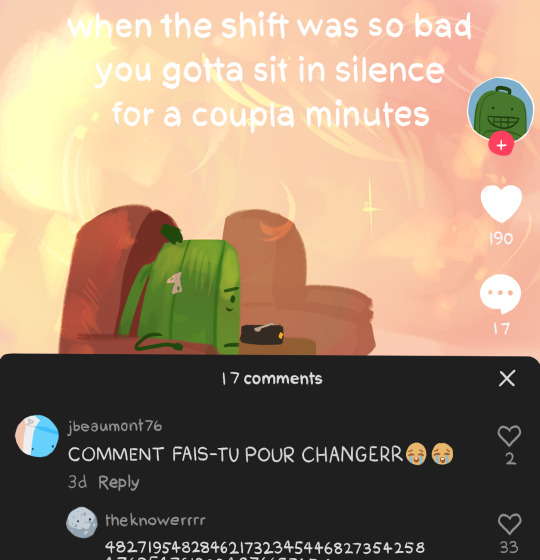
#hfjone#bryce hansen#liam plecak#my art#i spent all day at work thinking about drawing these and they turned out exactly as funny as i thought they would
1K notes
·
View notes
Text

one if it was good
#hfjone#hfj liam#liam plecak#hfjone liam#hfjone backpack#one object show#hfj one#object shows#osc#osc art#hfj one if liam won and wished for a million beers#bryce hfjone#hfjone bryce#bryce hansen#object show community#onehfj
934 notes
·
View notes
Text

He is a top (Non negotiable)
He is gay but plays the straight card at times. He also plays the you're not attractive card with straight guys to seduce them into bottoming.
He is turned on by power-related terms such as Sir, by being called daddy (he'd never call your muse boy unless the age difference is around 10 (he is 30 remember) and submissive attitudes in general. Maybe as part of his reluctance to use his powers to subdue someone, but doing it for the sake of protecting town.
He is turned on by the idea of hero x criminal however more so on the line of taking the criminal off the streets and crime and this sometimes making mistakes. Thus he is open for these types of dynamics even if he'd try to change them and won't forgive a constant hold of that life.
He loves walking around topless and, most of the time, also down to nothing or in his underwear. If it's a hot day, he stands naked behind the bar, but uses his powers to make everyone see him wearing stuff. Additionally, his bar has a topless and short shorts uniform when it's too hot, albeit not imposed.
2 notes
·
View notes
Text






The Village dir. M. Night Shyamalan | 2004
#the village#thevillageedit#filmedit#filmgifs#horroredit#userteri#usertennant#underbetelgeuse#tuserpris#henricavyll#userconstance#usersugar#userveronika#useraurore#userrlaura#bryce dallas howard#joaquin phoenix#*edit
1K notes
·
View notes
Text
KINKTOBER 2024 MASTERLIST
These will ALL be reader fics. One will be posted everyday of october.
Day One: Breeding with Azriel and Eris Vanserra
Day Two: Stalker / Somnophilia with Azriel
Day Three: Pegging with Cassian
Day Four: Spanking with Eris Vanserra
Day Five: Eating Out with Feyre Archeron
Day Six: Temperature Play with Aelin and Rowan
Day Seven: Losing Virginty with Lucien Vanserra
Day Eight: Against A Wall with Nesta Archeron
Day Nine: Tit Worship / Tit Fucking with Rhysand
Day Ten: Toys with Bryce Quinlan
Day Eleven: Rough / Squirting with Cassian and Nesta
Day Twelve: Fingering / Hate Fuck with Hunt Athalar
Day Thirteen: In Public with Ruhn Danaan
Day Fourteen: Praise with Liam Mairi
Day Fifteen: Deep Throating with Xaden Riorson
Day Sixteen: Edging with Dorian and Manon
Day Seventeen: Thigh Riding with Aelin Galathynius
Day Eighteen: Pregnant Sex with Dorian Havilliard
Day Nineteen: Period Sex with Fenrys Moonbeam
Day Twenty: Size Difference with Lorcan Salvaterre
Day Twenty-One: Daddy / Mommy with Rhys and Feyre
Day Twenty-Two: Orgasm Denial with Manon Blackbeak
Day Twenty-Three: Face Sitting with Rowan Whitethorn
Day Twenty-Four: Corruption with Azriel
Day Twenty-Five: Knife Play with Cassian
Day Twenty-Six: Strip Tease with Hunt and Bryce
Day Twenty-Seven: Wax Play with Eris Vanserra
Day Twenty-Eight: Handjob with Lucien Vanserra
Day Twenty-Nine: Anal Sex with Rhysand
Day Thirty: Cockworship with Dorian Havilliard
Day Thirty-One: Hunter / Prey with Azriel, Cassian, Rhys
****
COMMENT IF YOU WANT TO BE ADDED TO THE TAGLIST
****
Masterlist
Kinktober 2023 Masterlist
(My main masterlist is pinned on my account and THIS masterlist is on it!!)
#acotar fanfiction#acotar smut#throne of glass fanfiction#throne of glass smut#crescent city fanfiction#crescent city smut#kinktober#azriel smut#eris vanserra smut#cassian smut#rhysand smut#lucien vanserra smut#dorian havilliard smut#manon blackbeak smut#aelin galathynius smut#rowan whitethorn smut#lorcan salvaterre smut#fenrys moonbeam smut#feyre archeron smut#bryce quinlan smut#nesta archeron smut#hunt athalar smut#ruhn danaan smut#fourth wing fanfic#fourth wing smut#xaden riorson smut#liam mairi smut#kinktober 2024
1K notes
·
View notes
Text

i love drawing most random stuff on ms paint with a mouse AND WHY IS IT SO LOW QUALITY
#art#liam hfjone#hfjone#liam plecak#onehfj#doodle#my art#bryce hansen#bryce hfjone#cheesy hfj#sodapack
1K notes
·
View notes
Text

Today’s “Ring of Fire” eclipse. from, Bryce Canyon National Park.
Credits: NPS Photo/Peter Densmore.
#solar eclipse#amazing#event#sun#moon#eclipse#eclipse solar#astronomy#photography#solar system#earth#universe#cloud#nature#bryce canyon#natural park#tree#clouds#tumblr#original photographers#photographers on tumblr#awesome#art#blue#landscapes#planet#nasa#photo#annular eclipse#annular solar eclipse
7K notes
·
View notes